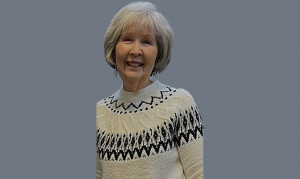It was the Great Depression that shaped my parents and would, in the years to come, shape my life as well. Because they saw first-hand the deprivation and starvation wrought by hard times, they would never forget.
And, in turn, they made certain that I would never forget either.
It still astounds me to recall that neither of my parents ever possessed a credit card. In the course of their lifetimes, three cars, two houses and one farm would be bought “on time” and each would be paid off early.
Other than that, every purchase was cash and rarely was it even a check. They took the dollars out, counted them carefully and paid for whatever they bought. Though they had both been brought up in the hardest of times, they would own outright – lock, stock and barrel – everything they held in their possession by the time they turned 50.
They were beholdin’ to God only. It was He who owned their destiny. “Lord, bless the workings of our hands,” Daddy always prayed aloud. If the good Lord would only send the work, matter what it was, then he and Mama would do it, grateful for the opportunity to make an honest living.
Once, Daddy gave me the down payment for a new car and Mama matched it. Hers came in the form of a check from her sewing while Daddy counted out a pile of musty-smelling, damp $20 bills. When I handed the money to car salesman who was dressed in a starched white shirt decorated with a perfect tie, he caught a whiff of the smell. He held it to his nose, took a deep sniff and asked, to my great embarrassment, “How long has this money been buried?”
I don’t know that it was buried but I know this: Daddy never completely trusted banks. He had lost 50 cents in a savings account when the Depression hit so he always hedged his bets: Money in the bank, cash in his billfold, cash in a safe deposit box and, apparently from the car deal, money in a Mason jar hidden somewhere deep in the red Georgia clay.
This kind of thinking worked out well for Mama and Daddy. They died owing nobody, owning everything they had and leaving a bit behind in the form of CDs. They never spent more than they had because they lived in fear of returning to starvation one day.
“Too many people spent themselves into the poorhouse,” Mama would say. “Their ‘wants’ outweigh their pocketbooks.”
It wasn’t a lot of fun to be raised by people who lived according to needs and not wants. Our pantry was often missing Coca-colas, potato chips and cookies. My dresses were homemade and my bangs, according to every photographic recollection of my childhood, were cut either by Mama or me. They are always crooked and far too short.
However, due to their stern guidance of faith and financial prudence, I am prepared for whatever might come. And, judging to how things are going now, something not so good is coming.
That’s what has me worried.
It seems to me that parents raise children according to how their childhoods were. Easy childhoods bring forth another harvest of easy childhoods perhaps even easier. A parent always wants his offspring to have it better. Times have been relatively easy since that depression of the 1930s, which means children have been taught with a gentler hand. I seriously doubt that few born after 1950 have ever buried a mason jar of money.
Our house is built on a hill of solid granite. Not just rock or gravel but a slab that is long, wide and deeply stubborn. It is not good land for burying anything, especially money, because there is no shovel that could survive the first stab at that red clay earth.
Yet, I dream about it. I learned that from my daddy.
[Ronda Rich is the best-selling author of “There’s A Better Day A-Comin’.” Visit www.rondarich.com to sign up for her free weekly newsletter.]












Leave a Comment
You must be logged in to post a comment.